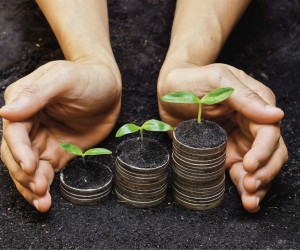According to South Africa’s Department of Environmental Affairs (DEA), the country views green economy as a sustainable development path based on addressing the interdependence between economic growth, social protection and a natural ecosystem. The DEA says the South African approach is to ensure that green economy programmes are to be supported by a practical and implementable action plan. Therefore it is important to building on existing best processes, programmes, initiatives and indigenous knowledge in key sectors towards a resource efficient, low carbon and pro-employment growth path. Government alone cannot manage and fund a just transition to a green economy and the private sector and civil society must also play a fundamental role, the department declares on its official website.
The DEA defines green economy in a South African context as a “system of economic activities related to the production, distribution and consumption of goods and services that result in improved human well-being over the long term, while not exposing future generations to significant environmental risks or ecological scarcities”. It implies the decoupling of resource use and environmental impacts from economic growth. It is characterised by substantially increased investment in green sectors, supported by enabling policy reforms.“The green economy refers to two inter-linked developmental outcomes for the South African economy: Growing economic activity (which leads to investment, jobs and competitiveness) in the green industry sector, and a shift in the economy as a whole towards cleaner industries and sectors.”According to the DEA, the country’s sustainable development vision is outlined in the National Framework for Sustainable Development (2008) as “South Africa aspires to be a sustainable, economically prosperous and self-reliant nation state that safeguards its democracy by meeting the fundamental human needs of its people, by managing its limited ecological resources responsibly for current and future generations, and by advancing efficient and effective integrated planning and governance through national, regional and global collaboration”.
But surely embarking on this brave new trend, or shall we rather say way of life, must mean that we would need to change certain processes and the way we’ve been doing since the beginning of time? And how will the new way forward affect the country’s current skills sets?. Achiever caught up with Wynand van der Merwe from the National Cleaner Production Centre of South Africa (NCPC-SA), who says that the perfect green economy would deliver equitable improvement in living standards without eroding environmental assets—and GDP + environment = green economy. According to the United Nations Environment Programme (UNEP), a green economy results in improved human well-being and social equity, while significantly reducing environmental risks and ecological scarcities.
Green industry
Looking at the green industry, Van der Merwe refers us to a quote by the United Nations Industrial Development Organization’s (UNIDO) Director-General Kandeh Yumkella: “If we want a sustainable and economically viable future, we need to ensure our industry does not harm the environment. We call this green industry.” Van der Merwe says green jobs the South African population could look forward to would include work in agricultural, manufacturing, research and development (R&D), administrative, and service activities that contribute substantially to preserving or restoring environmental quality. “It will include jobs that will help to protect ecosystems and biodiversity; reduce energy, materials, and water consumption through high efficiency strategies; de-carbonize the economy; and minimise or altogether avoid generation of all forms of waste and pollution.”
There will also be a shift in skills needed to drive a green economy. These skill-sets will need to:
- Generate energy (electricity, heat, or fuel) from renewable sources;
- Improve energy efficiency;
- Reduce pollution and greenhouse gas emissions;
- Develop and/or implement green technology;
- Practise recycling and reuse;
- Conserve natural resources;
- Ensure environmental compliance; and
- Educate, train, and increase public awareness towards green jobs.
Sustainability (the ability to continue a defined behavior indefinitely), will be of utmost importance in the future and sustainable practices will have to meet the needs of the present without compromising the ability of future generations to meet their own needs. “This means that we will have to continue doing many things that we’re doing now, discontinue doing some things we’re doing now, and do some things we do now, but do them differently.” Asked about the importance of skills development in a green economy from a governmental point of view, Van der Merwe says although he is not mandated to speak on this topic on behalf of Government, references should be made to the international treaties and protocols on climate change mitigation and the commitments signed by governments. “It stands to reason that a particular skill-set is required to sustain the pursuit and maintenance of a green economy. Certainly a new skill-set that varies from the existing one is required to uphold the status quo. New attitudes, thoughts, knowledge and skills are required when change is required. The role of education and training can never be over emphasised.”
Business perspective
From a business perspective, he says the most basic goal of any business is to maximise its profitability. Beyond this financial motive, moral and ethical issues like environmental responsibility and climate change mitigation are incorporated to varying degrees by different entities. “As a business case, the fact is that enhanced resource efficient practices will almost always improve profitability. Companies should embrace this principle without reservation. To do so effectively, specialist skill-sets need to be acquired and implemented to utilise new technologies processes, procedures and methodology.
“In addition to the financial motive, there is also the matter of sustainability. Not only of the company in a competitive environment where competing companies are always trying to find an edge, but also from a resource and environmental perspective. Companies are faced with survival challenges in an environment where resources are becoming increasingly scarce. The short supply of energy, water and natural resources, if not managed well, have and will destroy many companies. Again, new or adapted skill-sets are required to utilise new technologies processes, procedures and methodology to ensure survival,” he says. Van der Merwe has no doubt that, although the required skills are still considered scarce, South Africa has the potential to be among the leading countries pursuing a green economy. Though, getting to the point of a thriving green economy will come with its own challenges, and the major challenges will include:
- The development and implementation of new, or effecting changes to existing legislation, regulations, and policies that still promote earlier attitudes or strategies;
- Providing initial incentive schemes to encourage industry to embrace changes; and
- The need for skills of public and private sector employees to effect change
Benefits
That being said, how will SA (and the rest of Africa) benefit from running a green economy? “Energy and water are among the scarcest of our resources. Both of these are also critical elements for growth of economies and industries. Empowering the people of South Africa, and the rest of Africa, to optimise our limited resources, especially through enhanced efficiency, will reduce the barriers that exist to achieve the economic growth rate that is required to sustain a growing population.” Referring to the importance of partnerships within the green economy, Van der Merwe says local partnerships between different entities and programmes, especially those funded by Government, allow for better planning and utilisation of resources. It ensures that common goals are pursued efficiently and effectively with no time or resources wasted on duplication of efforts. It allows for orchestrated operational execution of strategies, policies, and government sponsored action plans. International partnerships are important to ensure international benchmarking and local implementation of international best practices.
What’s the NCPC-SA doing?
Van der Merwe says an important part of the NCPC-SA’s mandate is to promote the development of green skills. In pursuit of this objective, the NCPC-SA is involved in the following skills development initiatives:
- Developing specialist skill-sets of plant-engineers and consultants to improve the energy efficiency of industry through training on a range of disciplines.
- Equipping environmental managers, -engineers and -consultants with skills to perform Resource Efficiency and Cleaner Production (RECP) assessments. The aim of these assessments is to determine savings opportunities in the consumption of energy, water and materials during the production process, as well as ways to improve waste management.
- Improving the employability of recent graduates in Natural Sciences and Engineering disciplines through a 12-month RECP internship that qualifies them to perform RECP assessments and implement low-cost solutions.
- Facilitating the development of Occupational Qualifications in Energy Efficiency and RECP to further this relatively new career choice. Two new qualifications have been developed and await final approval and registration on the NQF by SAQA: that of Energy Management Advisor, and the Energy Audit Technician.
- Facilitating the establishment of a Professional Body for RECP practitioners to professionalise this industry and enhance the career growth prospects of practitioners will also play a vital role in job creation and job retention.






